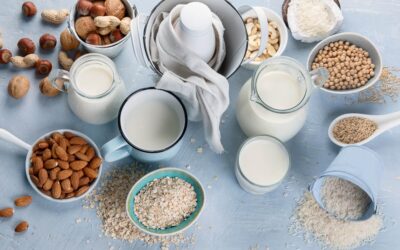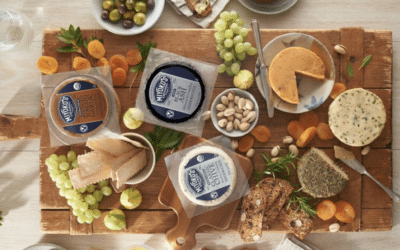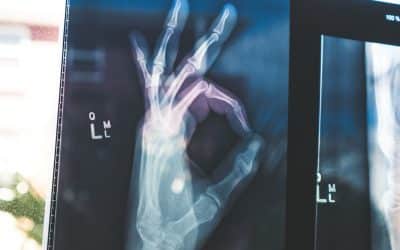Let’s talk about mortality. It isn’t a fun topic to broach, but it is one that many of us are faced with all too soon—because of our lifestyle. Western populations in particular are plagued with heart disease, stroke, and cancer, which may be prevented or at least delayed until old age in many cases. And while a dairy-free, whole foods-based diet has been shown to reduce the risk of these diseases, one recent study suggests the opposite. Published by the American Journal of Clinical Nutrition, this research claimed to find no correlation between increased mortality risk and the consumption of high-fat dairy foods such as yogurt and cheese. Perplexed by these findings, we decided to take a closer look.
Any diligent study analysis necessitates a look at the funding. We can fairly presume one of the lead researchers had a bias, as Dariush Mozaffarian has several connections to big dairy. He is an employee of Life Sciences Research Organizations, which is employed by the United Dairy Industry Association. He is also employed by Nutrition Impact, LLC, which has been linked to the National Dairy Council. Finally, Mozaffarian has a patent pending on trans-palmitoleic acid—a fatty acid derived from dairy sources. While we would hope all researchers put their personal gains aside when conducting research, it is impossible to ignore the fact that Mozzaffarian could benefit from a positive report on dairy’s behalf.
Onto the study itself. This was a population-based prospective cohort study with the intent to analyze all cause mortality by observing the levels of three specific dairy-based fatty acids in the participant’s blood over several decades (or until death). The researchers also monitored participants eating habits and general health. Data was collected via annual exams which included patient questionnaires, a physical exam, diagnostic testing, and blood sampling.
While the researchers claim that these individual fatty acids were positively associated with diseases ranging from cancer to dementia and even cardiovascular disease, the actual data was statistically insignificant to support these bold claims. Further, the study did not accurately account for the other lifestyle choices of the participants. To average the impact of a participant’s alcohol consumption along with other socioeconomic factors in relation to the mortality impact of these very specific fatty acids is far beyond the scope of this study. One cannot confidently suggest that the consumption of high-fat yogurt and cheese has a positive correlation with mortality given these immense and almost impossible to control factors.
Finally, the goal of this study was to determine if these specific fatty acids are a safe and viable option for pharmaceutical production. The intent was not to sell more cheese or yogurt, and yet that is what the media picked up on. The results, which are unreliable at best, have been twisted into a flashy headline to promote big dairy and ease the guilt of the self-proclaimed cheese addicts. However, no matter how you spin it, dairy, in any form, is not a health food, and it won’t make you invincible. While plants are also not a magic pill to make you live forever, you’ll certainly improve the quality of your life and potentially extend your years.








